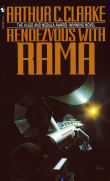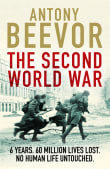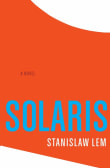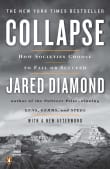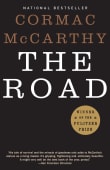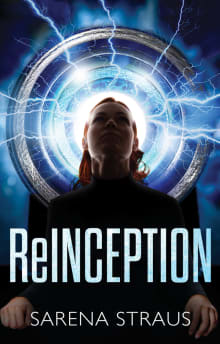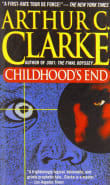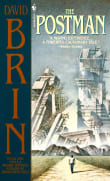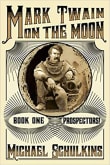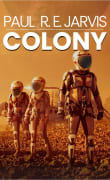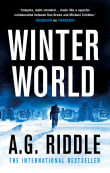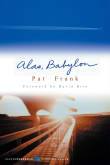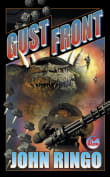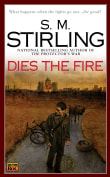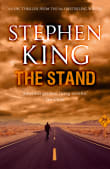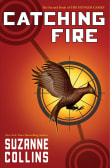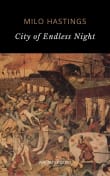The War of the Worlds
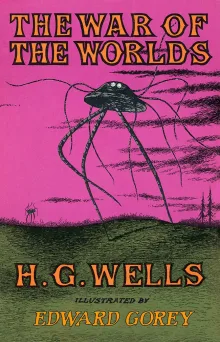
Book description
But planet Earth was not only being watched - soon it would be invaded by monstrous creatures from Mars who strode about the land in great mechanical tripods, bringing death and destruction with them. What can possibly stop an invading army equipped with heat-rays and poisonous black gas, intent on…
Why read it?
17 authors picked The War of the Worlds as one of their favorite books. Why do they recommend it?

H.G. Wells delivers an astonishing tale of space invaders from Mars, with breathtaking scenes of monstrously huge three-legged walking machines terrorizing the populace of London and its surrounds. For sheer imagery, few science fiction stories before or since have come close to its gripping, real-world feel.
The story is told by an unnamed protagonist who goes on an odyssey in ravaged London as towering alien war machines chase, kill, or capture fleeing citizens in chaotic scenes of panic and fear. That fear sent chills along my spine on rereading this classic recently.
Notable were touching humanistic scenes with Dr. Ogilvy,…
From Thomas' list on sci-fi about dinosaurs and monstrous creatures.

I love this book as it’s a classic masterpiece in beautifully concise storytelling. There’s not a wasted word in this fantastic novel that was way ahead of its time. It boggles my mind that this book was published in 1898 and deals with an alien invasion. Just think, there would be no Alien, ET, or Independence Day without War of the Worlds blazing the trail over 100 years ago.
There’s a place in literature for the sprawling epic, but as an author, I can’t tell you how hard it is to tell a complete story in so few words.…
From Jon's list on lose yourself into character dynamics.

I don’t know what I was expecting when I decided to cross this book off my “should have read a long time ago” list, but right off the bat, the narrator is riffing on humanity’s destruction of its own planet and Europe’s extermination of indigenous groups across the world, and asking if we can really blame the Martians for giving us a taste of our own medicine.
Written in 1898 as the Victorian age waned and the new century loomed, Wells weaves all sorts of still-relevant commentary between the gripping action and horror. Whether it’s the suicidal religious fervor of…
From Jools' list on real-life time machines through sci fi.
If you love The War of the Worlds...

This book is why I became an author.
I started reading this book in class at school, when I was around thirteen years of age. The class read the first two chapters, and I was so enamoured with it I couldn't wait to get home and read it. I read it in its entirety that very night. I found the language and description used within it quite breathtaking. I couldn't wait to read the next chapter. It had a lasting effect on me and led me to start writing my own stories down.
From David's list on horror books that changed my life and could change yours.

The immersive nature of this book's narrative gripped me from the very start. This is a truly foundational text in the genre, but it nevertheless holds up to this day.
I particularly enjoyed the two-part story’s focus on humanity’s initial resistance to the invading force as well as an exploration of life under Martian control.
It goes without saying that the book is considerably older than the others I read while becoming interested in this topic. I enjoyed reflecting on the similarities and differences in Wells’ contemporary ideas about aliens, which naturally reflect some key Earth-based societal concerns of the…
From Craig's list on how things will change when the aliens show up.

Although it is well over a hundred years old, this book is well worth your time to read.
Its insights into the nature of hostile First Contact are far from fictional. H.G. Wells was inspired to write this book after hearing of the genocide of Aborigines in Tasmania, where bounties were put on the heads of natives ($5 for a man, $1 for a child, nothing for women). As Australia was still a British colony at the time, there was a public backlash against the atrocities of these settlers.
This left H.G. Wells wondering what it would be like if…
From Peter's list on classic science fiction on first contact.
If you love H.G. Wells...

This is a bit of a cheat too, because it’s not about us exploring space, it’s about creatures from space coming to Earth – in the classic tale of a Martian invasion.
Wells writes beautifully – and the book isn’t too long – but it’s maybe a bit much for readers of my book right now. I include it because I hope they’ll read it when they’re older. It had a big impact on me as a 10-year-old because the Martians land – and start their campaign of conquest and destruction – in the little corner of Surrey, England, where…
From Timothy's list on making space exploration a blast for kids.

In his seminal science fiction masterwork, The War of the Worlds, H.G. Wells created one of the greatest opening sentences of all time.
Complex, cerebral, and hyperbolic, it is timeless paranoia from the late Victorian era that resonates today more than ever. Here it is in all its purple prose and polysyllabic glory:
No one would have believed in the last years of the nineteenth century that this world was being watched keenly and closely by intelligences greater than man’s and yet as mortal as his own; that as men busied themselves about their various concerns they were scrutinized…
From Jay's list on thrillers that begin with a bang.

You might think this classic was written in the 1930s because of the panic-causing radio drama, but it was actually published in 1898.
How astounding it must have seemed back then, and the tale of Martians causing utter destruction has endured the test of time.
What stood out for me was the difficulty of disseminating information in the late nineteenth century, and the in-depth descriptions of the English landscape, the Martians, and their machines: “…vast spiderlike machines, nearly a hundred feet high, capable of the speed of an express train, and able to shoot out a beam of intense heat.”…
From Susan's list on disasters where society fails suddenly.
If you love The War of the Worlds...

This steam-age portrayal of an alien invasion grabbed my attention when I was in grade school. The author’s description of burning cities and forests painted a picture of ecological horror in my imagination. The impact of that has stayed with me, so much so that I have included the ecological consequences of war in much of what I have written.
From Justin's list on the environmental impacts of war.
If you love The War of the Worlds...
Want books like The War of the Worlds?
Our community of 12,000+ authors has personally recommended 100 books like The War of the Worlds.



